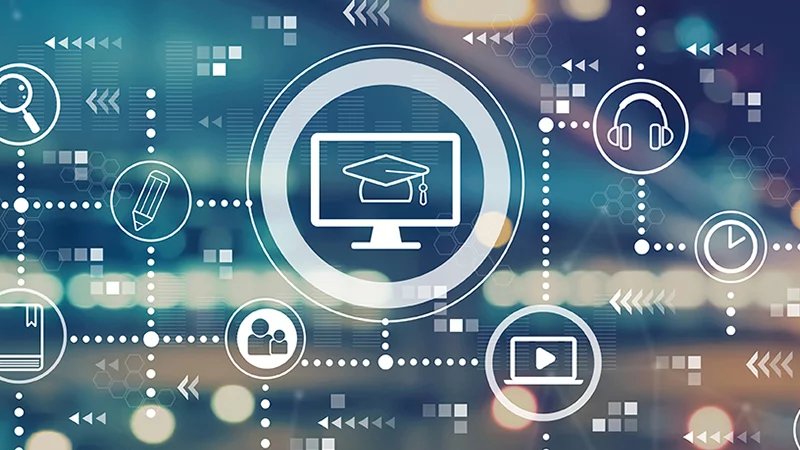
Artificial intelligence – or AI for short – is technology that enables a computer to do tasks that are usually done by humans. As technology becomes more advanced, it is becoming a bigger part of our lives, reshaping a range of activities from the way we shop to how we select MBA programs.
In order to understand how technology helps applicants in the school selection process, we need to go back several decades to trace the emergence of AI.
Can machines think?
The term 'artificial intelligence' was first used in 1956 by John McCarthy but the concept of smart machines existed well before that. In fact, the concept is probably as old as the human imagination. In 1950, at the dawn of computing, pioneering computer scientist Alan Turing was among those trying to figure out ways to make machines ‘think’. Turing believed that it was possible for machines to use available information and reason in order to solve problems, just as humans do. He faced many obstacles, including the prohibitive price of computers at that time and their still very limited capabilities.
Following some big breakthroughs in the 1950s and 60s, people realized that creating a machine possessing human-level intelligence will be more difficult than originally thought. This period is known as AI winter and was characterized by waning interest in AI.
By the 1990s, the approach in the AI field has changed from logic-based to statistical. Computers were no longer asked to follow rules but to solve problems using large pools of data.
AI is everywhere
Fast forward to today. AI underpins most of the services we use, thanks to the deep troves of data tech that companies have built since the turn of the millennium. Phones, video games, e-commerce – AI is everywhere and we use it every day without even realizing. It is the reason why Netflix can suggest movies that correspond to your interest or Amazon customizes its web page in accordance with your browsing history on the website. AI has even penetrated Wall Street, with computer programs placing trades at a speed and frequency that is impossible for human traders.
AI systems now routinely beat humans at various tasks. Google’s artificial intelligence unit DeepMind created a chess program in 2017 that is capable of studying the game without human intervention. When grand master Garry Kasparov saw it play, he described it as shaking the game “to its roots”. In 2020, MIT researchers instructed AI to create the new antibiotic halicin, a powerful new drug that can kill many species of antibiotic-resistant bacteria. The program completed the task by screening more than a hundred million chemical compounds in a matter of days.
And yet, for all the progress, AI has fallen short of many of the promises made by some of its most vocal supporters. IBM’s Watson unit, which was designed to remedy inefficiencies in healthcare, is a disappointment, in part because physicians are hesitant to adopt artificial intelligence. Self-driving vehicles, another field where AI holds big promise, seem to be a long way away. In 2015, Elon Musk said that self-driving cars would be here within two or three years. Six years after this prediction, experts are unsure when self-driving cars will be available, if ever. Today’s prototypes are far from perfect and are struggling with basic tasks like recognizing a stop sign when half of it is covered by a tree branch.
AI-powered MBA selection
While AI is still of little use to those eagerly awaiting self-driving vehicles, MBA candidates can rejoice because program selection services like Unimy are making their lives much easier.
Let’s suppose that you are looking for an MBA program, but you still don’t know which one to choose or where. With the Unimy Match tool, which is based on AI-enabled technology, you can get your personalized list of top 10 MBA programs in minutes. The keyword here is ‘personalized’, because the search does not produce the same list for everyone. The tool works with all the information you provided beforehand, breaks it down to more than 400 features and pinpoints the programs that best correspond to your criteria. Similar to DeepMind’s chess program, the Unimy Match tool uses machine learning technology. But unlike DeepMind, which does not need human help to learn, the Match tool learns from people as they use it to constantly improve and develop.
Just imagine the hassle of checking each and every MBA program one by one and comparing all the different features. Thanks to Unimy, this in now history.
Comments
There are no comments.